Addressing concerns can shape green hospitality
How do you balance the investment requirements for green and sustainable technology and materials with the profits of your group?
Instead of focusing solely on the immediate challenges of high investment costs, we need to understand the characteristics of green tourism and hotels, as well as determine the goals of businesses in investing. It is necessary to consider and balance between the practical realities of Vietnam’s context and the desires of businesses to align with the global development trend to avoid planning far from reality. From there, businesses establish a clear road map for the green transformation process.
Investment costs should be divided into stages, and it is clear that making large expenditures in advanced technologies and materials is not necessarily required in the initial stage if businesses have not yet found ways to effectively utilise available resources. For instance, raising awareness about saving water and electricity, segregating waste, and minimising single-use plastics already contributes to the green transformation process.
Training and raising awareness and knowledge among employees are prerequisites in the implementation process. At the same time, hospitality businesses can actively participate and create propaganda activities for local people and tourists to introduce the sustainable tourism model.
However, the core of the green transition lies in individual awareness and collective action, the behaviours of employees and customers must be consistent for the green transformation to achieve meaningful and positive changes.
 |
| Nguyen Thi Minh Thu, CEO of AKYN Hospitality Group |
How do you evaluate the level of commitment of Vietnamese tourism businesses in implementing sustainable models, and what barriers exist?
Vietnam is witnessing the rise of more and more tourism businesses moving towards a sustainable model, and the level of commitment is still very different among businesses. The barriers businesses face are the lack of definition of what is “green” or “sustainable” tourism, along with the assumption of green tourism requiring high cost without immediate or tangible returns, particularly from the perspective of small-scale investors.
Besides that, changing habits and awareness of each individual and the whole communication is still one of the challenges during the green transition process.
Currently, the level of commitment of large enterprises with well-developed ecosystems in each region is more advantageous than small and scattered enterprises, especially when compared from a financial perspective. For example, large enterprises with multiple travel and hotel categories in one region can distribute costs more effectively than enterprises with only one or two hotels in the same area.
The most enduring challenge in promoting green and sustainable tourism is to attract investment. How can Vietnamese tourism businesses access green financing or international sustainable investment funds?
To have access to green financing and international sustainable investment funds, we must understand the investors’ concerns and priorities, by working with experts to create a clear road map and actualise the implementation steps, then evaluating and proposing effective strategies that align with investors’ interests.
In addition, businesses must build an attractive brand and narrative that is consistent and compelling. At the same time, it is necessary to develop regulations to ensure transparency and accuracy in reporting to help the plan processing consistently and sustainably, not just temporary and short-term.
In the context of climate change and the need to comply with international standards on sustainable development, how do you assess the challenges and opportunities for high-end hotels and resorts like yours?
The challenges of the green transformation come from complying with increasingly strict standards for sustainable development, requiring businesses to invest heavily in green infrastructure, which can cause financial pressure especially on newly established hotels or ones undergoing restructuring.
Additionally, environment/natural risk management is difficult to address thoroughly in the current context of climate change. Meanwhile, the greatest obstacle is training and developing high-quality workers with an in-depth understanding of sustainability issues and operating according to international standards in the current limited context. However, we can also see many new opportunities in innovating products and services, with the potential of attracting more groups of people interested in luxury ecotourism. Vietnam’s rich and diverse natural resources are completely suitable for developing this customer segment.
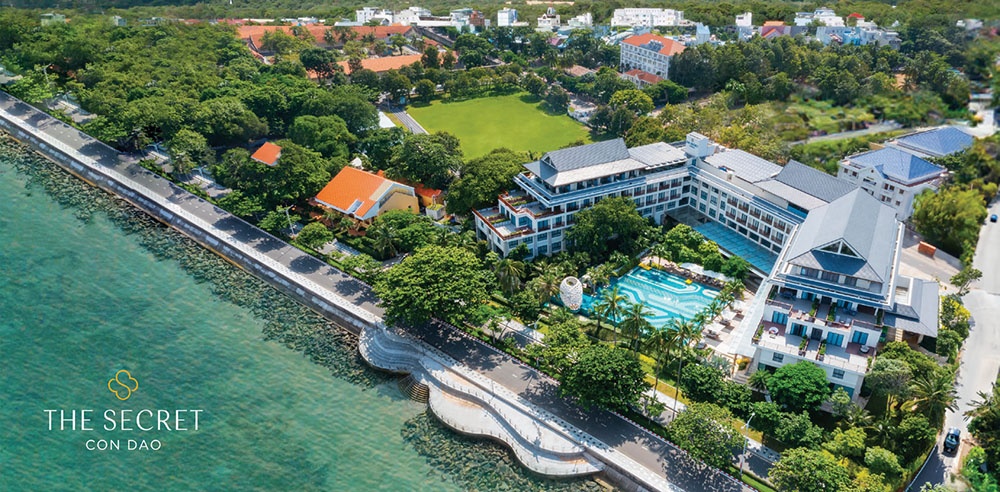 |
How can green technology and innovative solutions such as digitalisation, blockchain, AI, and renewable energy support eco-luxury tourism in Vietnam?
The application of green technology and innovative solutions are not just an option but an urgent requirement, which enhance the customers’ experiences and strongly promote the development of tourism models in Vietnam. I believe technological solutions have already been, and continue to be, adopted by Vietnamese businesses today.
With our first hotel brand, The Secret Con Dao, we have gradually implemented a number of solutions in the green transition process by apply some digital tools, including cashless payment, virtual menu via QR code, and promotional information on TV screens instead of printing publications.
We have also implemented the green transition by using solar energy to provide electricity for the hotel, equipping a water system to minimise package plastic bottle usage and manage cost, and adopting other initiatives like using paper straws, paper bags, and room item packaging made with FSC-certified technology.
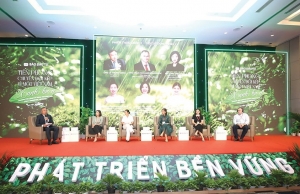 | Dual transition to help firms of all sizes The green and digital dual transition is bringing transformative changes to Vietnam’s business community, but significant challenges in financial resources and policy frameworks need to be addressed for greater acceleration. |
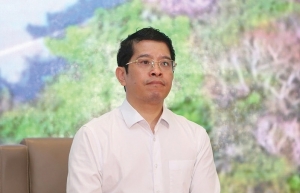 | Dual transition can motivate businesses Investing in green transformation will be a crucial tool for Vietnam to secure substantial advantages in global trade, Prof. Nguyen Dinh Tho, general director of the Institute of Strategy and Policy on Natural Resources and Environment, under the Ministry of Natural Resources and Environment, explained more to VIR’s Hoang Minh. |
 | Green banking takes root in Vietnam Environmental, social, and governance (ESG) standards in Vietnam's banking sector are evolving, with governance well-established, but environmental and social aspects present ongoing challenges and opportunities for sustainable growth. |
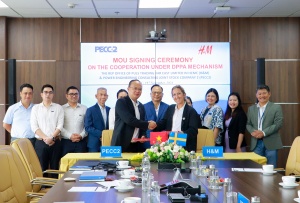 | H&M Vietnam signs green deal with PECC2 The Swedish clothing retailer H&M has signed a green energy deal to facilitate its Vietnam-based suppliers to convert to renewable energy sources. |
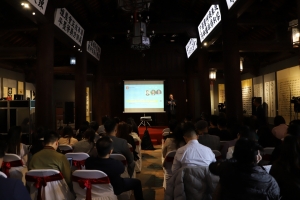 | Vietnam and Denmark exchange expertise on green urban transformation Vietnam’s remarkable economic growth and rapid urbanisation are presenting significant environmental challenges, necessitating practical strategies to incorporate green infrastructure and sustainable practices into urban planning, so, learning from Denmark’s advanced experience in green urban transformation could provide Vietnam with actionable solutions. |
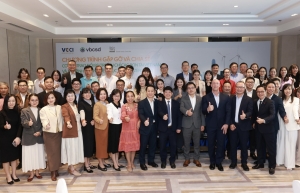 | Nestlé Vietnam accompanies business community towards green era The development of the carbon market is key to helping Vietnam effectively cope with climate change and contribute to achieving its net zero target. |
What the stars mean:
★ Poor ★ ★ Promising ★★★ Good ★★★★ Very good ★★★★★ Exceptional
Related Contents
Latest News
More News
- Wine securing a stronger foothold in Vietnamese market (June 09, 2025 | 10:50)
- Vibrant Vietnamese cuisine fit for global tastes (June 09, 2025 | 10:42)
- Vietnam can be global hot spot in 2025 (January 29, 2025 | 00:38)
- Promoting tourism and hospitality with sustainability (January 28, 2025 | 09:00)
- Vietnam centres on eco-luxury tourism and hospitality (January 28, 2025 | 02:06)
- Growth prospects for Vietnam’s event tourism in 2025 (January 28, 2025 | 01:18)
- Core values drive success at Marriott (January 24, 2025 | 16:00)
- Hoteliers to prioritise eco-luxury (January 04, 2025 | 09:00)
- Vietnam upscale tourism on the rise for 2025 (December 30, 2024 | 12:03)
- Vietnam’s sports economy to lead a new era of development (November 06, 2024 | 16:31)

 Tag:
Tag:




















 Mobile Version
Mobile Version